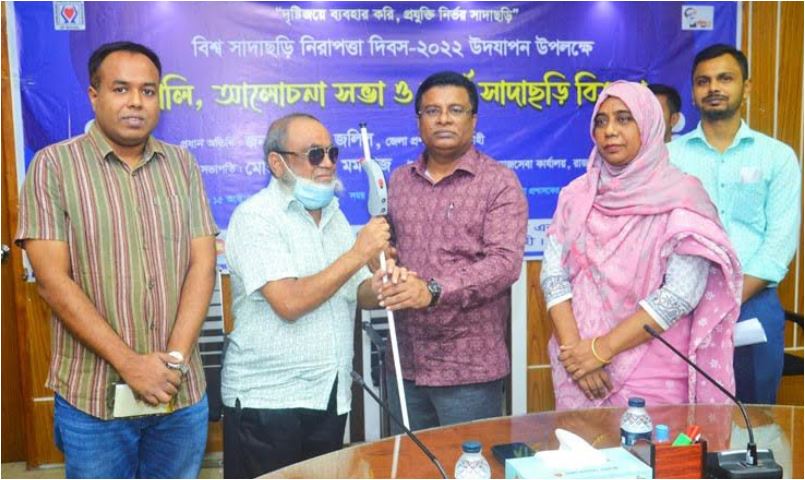
RAJSHAHI, Oct 15, 2022 (BSS) - The World White Cane Safety Day- 2022 was observed here today in a befitting manner with the call for ensuring legitimate rights to the visually impaired people for their welfare.
This day is a chance to connect with others people that might need your assistance. On White Cane Safety Day, many people can participate in gatherings and activities that will benefit persons who are blind or visually impaired.
To mark the day, the Department of Social Services (DSS) and District Administration jointly hosted a meeting at the conference hall of the Deputy Commissioner (DC), Rajshahi.
Large number of people including members of various voluntary organizations who have been working for improving the living and livelihood conditions of the blind people joined the meeting.
On the occasion, 12 visually impaired people were given white canes to make their movement smooth.
DC Abdul Jalil and Additional Deputy Commissioner (ADC) Kollyan Chowdhury addressed the discussion as chief and special guests respectively with DSS Deputy Director Hasina Momtaz in the chair.
Social Service Officer Dr Hamidul Islam and General Secretary of Protibandhi Unnayan Sangstha Habibur Rahman also spoke on the occasion.
The meeting was told that the World White Cane Safety Day-15th October is annually celebrates the achievements of the people who are blind or visually impaired. The day marks the importance of recognizing the white cane.
The white cane is not only a tool. It also represents the independence of those who are blind worldwide.
This day has been set aside to celebrate all of the achievements of people who are blind or visually impaired, and the principal symbol of blindness and tool of independence, the white cane.
The discussants said instead of neglecting the physically challenged people, they should be built as an efficient workforce to make a prosperous Bangladesh.
Terming the visually impaired people as an integral part of the society, Abdul Jalil observed that overall development of the nation is not possible, excluding the huge population.
He called for creating better scopes for education and vocational training to create more employment opportunities for the challenged people.